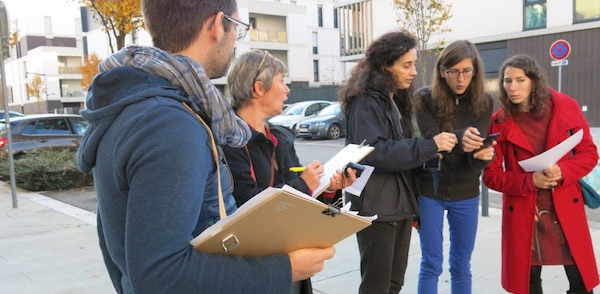- "The skills that these new tools require are concentrated in a few people and we haven't really thought about the succession yet."
- "You have to find the skills and availability to animate the website (changing pages every week to be well referenced, it takes time and not everyone knows how to do it)".
- "The concentration of "knowledge" on a limited number of people is a problem. Technical knowledge gives the ability to decide and do. This should not be the case. Therefore, training, pedagogy and humility are needed.
- "It is difficult to reconcile the work habits of each team member in the concerted and shared use of a digital tool, including the simple storage of files on a network: common tree structure, common recording method, etc.
- "The main difficulty of operation is the habit taken by people in general, through the multiplication of smartphones, to read (or not) the messages received, but to hover over them and never answer them.
- "The lack of active volunteers combined with the reduction in staff makes the management of the association inhumane and robotic."
- "It takes time to implement new tools. We're looking at migrating to AssoConnect and evaluating Zendesk, but we need to find the time to do the testing and then migrate."
- "Tool durability: when people change in the office, the tools change, so it's hard to keep good track of the tools."
The annual study The place of digital technology in the associative project, set up by Recherches & Solidarités and Solidatech, has been an annual barometer of the digital transition of associations since 2008. It is based on a survey of more than 2,500 association managers from all regions of France, reflecting the diversity of the association network.
When asked about their digital maturity, 21% of associations describe themselves as " not very initiated ", 55% as " in progress " and 21% as " experienced".
Associations adopt digital tools for three main reasons: "to make the association better known" (73%), "to improve the animation of the network" (72%) and "to manage the association's activities" (60%). The search for funding is the last reason given (23%). For external communication, associations prefer websites and social networks. Internally, they mainly use digital tools for accounting (48%) and management (31%). To animate their network, only 9% of them use distance learning tools.
From the multiplication to the rationalization of tools
Associations have a wide range of tools at their disposal. However, the uses are very unevenly spread. Among a list of 16 tools, the website and social networks, basic external communication tools, are the most common (respectively 71% and 67% of associations using them). On the other hand, distance learning tools concern less than 10% of associations today. Platforms designed to propose volunteer missions and collect the expectations of those who wish to "take the step of associative commitment", are used by only 6% of associations in 2019. " Generally speaking, the authors of the study observe, after a phase of excessive multiplication of certain tools, we are witnessing, in 2019, a phase of rationalization to find those that will really gain in efficiency.This survey offers two approaches to assess the effects of digital technology: the results observed in relation to the objectives set and the effects observed on practices and operating methods
With regard to the results observed in relation to the objectives set, the authors of the survey note that they " are most often achieved and mastered in terms of management, leadership and communication. The success rate is lower for collaborative uses and new member services, which require choosing or developing the right tools and, above all, completely rethinking work habits.
As for the effects observed on practices and operating methods, "three out of four managers recognize the virtues of digital technology in this area, with the exception of truly unfortunate experiences. However, there are signs that there is real room for improvement, especially with two clearly favorable conditions:
90% of managers are positive in associations where most of the active members are involved, compared to 48% when the digital topic is outsourced.
84% of associations are experiencing difficulties
In 2019, 57% of association managers claim to have difficulties on a human level in their digital practices. The financial difficulties to equip or train themselves, come second (41%), followed by those of a technical nature to find the right tools, follow the developments, ensure maintenance (34%).Strategic issues are raised much less often (19%), probably also because they are much less discussed in associations.
Among the levers of action mentioned by association managers are a better knowledge of existing tools (cited by 54% of association managers), the upgrading of the least initiated team members (46%). The financial means to equip themselves come in 3rd place.ème position and concern nearly 40% of associations. In addition, about 30% of the association leaders also highlight the need to acquire skills through training, financial resources and exchanges of experience with other associations.
Référence :





